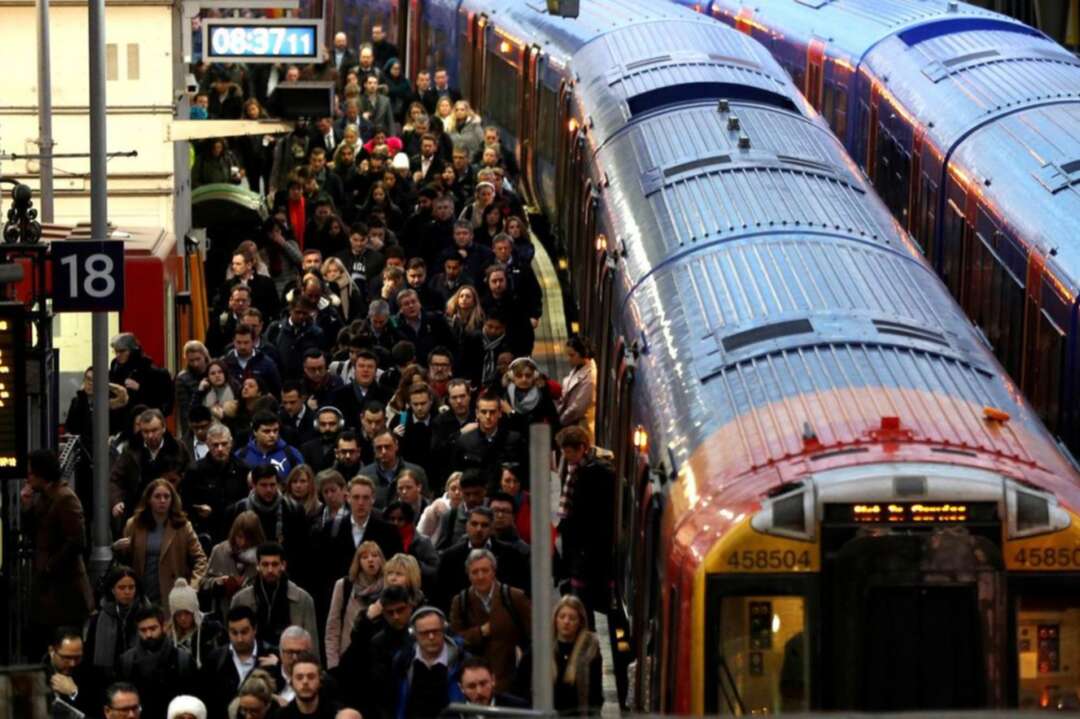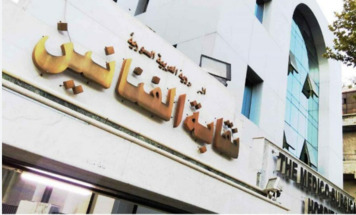-
Rail fares rise by 2.7%, hitting millions of commuters

Millions of commuters will have to pay an average of 2.7% more for train tickets from today.
The rise, announced by industry body the Rail Delivery Group in November, is lower than the 3.1% increase at the start of last year.
Train companies say it is the third year in a row that average fares have been held below RPI - the inflation measure on which rises are based.
But many commuters face an increase of more than £100 for annual passes.
Transport Secretary Grant Shapps cited a new fund for trials for flexible fares as an example of how the government was committed to "putting passengers first".
He said he planned to tackle the "fragmented" system and had begun the process to end the franchise for Northern Rail, whose performance was "completely unacceptable".
"You can judge me on this at the end of the year," he told BBC Breakfast. "These changes are going to take time but I think people will see things moving in the right direction."
But Labour's shadow transport secretary, Andy McDonald, said the rise showed passengers were "once again paying more for less under the Tories".
Independent watchdog Transport Focus says most rail users (53%) do not feel train ticket prices offer value for money.
The watchdog's director, David Sidebottom, said: "After a year of pretty poor performance in some areas, passengers just want a consistent day-to-day service they can rely on and a better chance of getting a seat."
He encouraged passengers to claim compensation for eligible delays in order to "offset" the cost of fare rises.
Season ticket rises
Some annual passes go up by more than £100
£132Reading to London. Total £4,736
£118Gloucester to Birmingham. Total £4,356
£116Glasgow to Edinburgh. Total £4,200
However, Robert Nisbet, director of nations and regions for Rail Delivery Group, said rail companies were investing in improving journeys while holding fare increases below inflation.
He said 2020 will see 1,000 extra weekly services and 1,000 more carriages added to Britain's rail fleet.
"There is a record level of investment going into the railway at the moment," he told BBC Radio 4's Today programme.
"For people who do suffer from poor punctuality in areas of the country, that could be for a variety of different reasons, we apologise. We are looking at at trying to make punctuality much better across the board," he said.
Official statistics show that just over one in three trains failed to arrive on time in July, August and September 2019, although that figure was an improvement on the previous year.
Passenger complaints
About 40% of annual rail price rises are regulated by governments in England, Scotland and Wales. They are pegged to the Retail Prices Index (RPI) inflation measure for the previous July. Other fare rises are decided by train companies.
RPI inflation was 2.8% last year.
But RPI inflation is generally higher than the most widely watched measure of inflation, the Consumer Prices Index (CPI).
Passenger groups have repeatedly called for the system to be changed since RPI inflation was abandoned by the UK Statistics Authority as a national statistic in 2013.
Emily Yates, a freelance writer from Brighton who co-founded the Association of British Commuters, said the annual rises feel like "Groundhog Day" and a "complete charade".
"Every year, we ask for a fares freeze, the government says no, and the rail industry defends the decision," she said.
Protests will be held against the fare increase on Thursday, including a demonstration outside London King's Cross station.
The rallies come as the Trades Union Congress (TUC) releases research suggesting fares have risen by twice as much as wages in the last 10 years.
The TUC said someone earning an average salary in the UK would have to spend 16% of their wages for a season ticket from Chelmsford to London (£511 a month), but similar commutes would cost 2% of the average salary in France, and 4% in Germany and Belgium.
source:BBC
Tags
You May Also Like
Popular Posts
Caricature
BENEFIT Sponsors Gulf Uni...
- April 17, 2025
BENEFIT, the Kingdom’s innovator and leading company in Fintech and electronic financial transactions service, has announced its sponsorship of the “Innovation and Sustainable Technology Solutions Competition (GU - IST Solutions), hosted by Gulf University at its main campus.
This strategic sponsorship reflects BENEFIT’s active role in advancing technological innovation and fostering sustainable solutions to future challenges. It also seeks to empower Bahraini youth by enhancing their skills, capabilities, and competitiveness in innovation and solution development—contributing meaningfully to the broader goals of sustainable development across all sectors.
As part of BENEFIT’s active involvement in the competition, the company has announced that Hanan Abdulla Hasan, Senior Manager of Public Relations and Communication, will serve on the competition’s supervisory committee. Her upcoming participation reflects BENEFIT’s forward-looking commitment to championing academic and professional excellence.
Commenting on the occasion, Hanan Abdulla Hasan, Senior Manager of Public Relations and Communication at BENEFIT, said, “We are privileged to support this pioneering initiative, which aligns seamlessly with BENEFIT’s enduring commitment to fostering innovation and nurturing the potential of Bahrain’s youth. Our participation is rooted in a deep sense of social responsibility and a firm belief in the pivotal role of innovation in shaping a sustainable future. Through such platforms, we seek to empower the next generation with the knowledge, skills, and foresight required to develop impactful solutions that address future challenges, in line with the United Nations Sustainable Development Goals 2030.”
Dr. Aseel Al Ayash Dean of the College of Engineering in Gulf University commented, “We extend our sincere gratitude to BENEFIT for their generous sponsorship and support of the Innovation and Sustainable Technology Solutions Competition. This contribution plays an instrumental role in helping us achieve the strategic goals of this initiative, namely, cultivating a culture of innovation and sustainability, encouraging efforts that address the imperatives of sustainable development, and enhancing the practical and professional capabilities of our students and participants.”
The event will bring together a diverse spectrum of participants, including secondary school students, university undergraduates, engineers, industry professionals, entrepreneurs, academic researchers, and subject matter experts representing a wide range of disciplines.
The competition seeks to inspire participants to develop and present innovative, sustainable technologies aimed at addressing pressing environmental, social, and economic challenges. It encourages the formulation of business models that integrate advanced technological solutions with core principles of sustainability. Moreover, it serves as a platform for emerging leaders, entrepreneurs, and innovators to contribute to the advancement of the Sustainable Development Goals, promote the ethos of responsible technology, and demonstrate its transformative potential across various sectors.
Attendees will have the opportunity to view a series of project presentations submitted by participants, covering diverse areas such as eco-friendly product design, smart and sustainable innovations, renewable energy technologies, water conservation and management, waste minimisation and recycling, green architectural solutions, and sustainable transportation systems. Outstanding projects will be formally recognised and awarded at the conclusion of the event.
opinion
Report
ads
Newsletter
Subscribe to our mailing list to get the new updates!






















